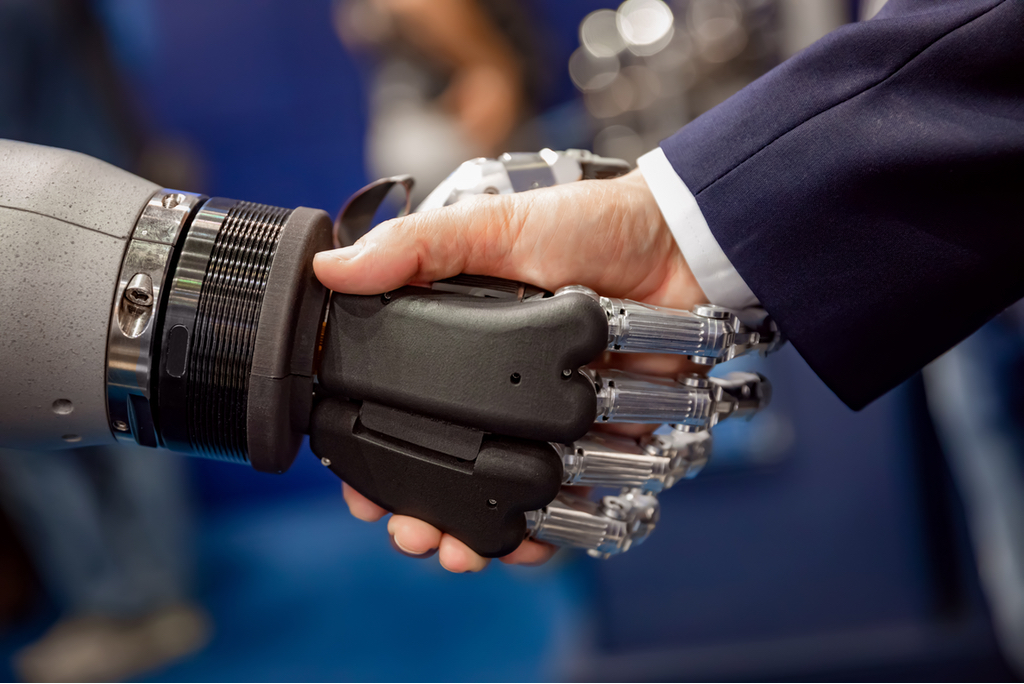
This is a sponsored post from Digi-Key. Written by S. Himmelstein.
Artificial intelligence (AI), robotics, and other advanced technologies are posed to improve productivity, efficiency, and economic growth across virtually all economic sectors. Beyond chess-playing computers and self-driving cars, machine and deep learning capabilities enable computers to process vast amounts of data in order to achieve specific goals and tasks. The potential for AI and automation to contribute to faster and more accurate programming and production also raises the prospects for broad impacts on the nature of employment itself.
Because it is likely that AI could replace jobs involving repetitive or basic problem-solving tasks, it seems logical to assume that AI and automation will radically alter workflows and opportunities for blue-collar workers. However, there is a strong possibility that white-collar jobs could be more affected. According to a new analysis by the Brookings Institution, people with graduate or professional degrees will be exposed to AI nearly four times as much compared to workers with high school degrees. Furthermore, those with bachelor’s degrees will be the most exposed by education level. On average, the group will experience exposure to AI more than five times the amount of high school degree holders.
Manufacturing sectors will reap the AI technology benefits of enhanced monitoring and supply chain optimization. In financial institutions, AI techniques can be used to identify which transactions are likely to be fraudulent. Through AI, the industry could also adopt fast and accurate credit scoring while automating manually intense data management tasks. Disruptions in the transport and logistics realm will include autonomous trucking and delivery on the roads and automated picking in warehouses.
AI systems are also envisioned as aids, rather than replacements, for physicians performing medical diagnostics. Continuous interaction between human physicians and AI-powered diagnostic engines will enhance the accuracy of the latter. This transition period could build confidence over time for humans to delegate tasks entirely to AI systems to operate autonomously.
Up to 38% of U.S. jobs could be affected by such automation by the early 2030s, a prediction higher than those for Germany (35%), the U.K. (30%), and Japan (21%). However, in the U.S. alone, cognitive technologies such as robots, AI, machine learning, and automation will create 9% of new jobs by 2025 for robot monitoring professionals, data scientists, automation specialists, and content curators. As with the emergence of many other innovative technologies, AI can exert a positive impact on economies by fostering jobs that require the skill set to implement new systems.
How can society best protect workers and prepare them for a hybrid workforce in which AI and human beings are employed side-by-side? Education systems need to focus on training students in roles directly associated with working with AI–including programmers and data analysts–to facilitate transitions to new occupations with new skills. This requires more emphasis on science, technology, engineering, and mathematics (STEM). Note that while AI will prove more productive than human workers for repetitive tasks, humans will always outperform machines in jobs requiring relationship-building and imagination.
Resources
Muro, Mark. Whiton, Jacob. Maxim, Robert. (20 November 2019). What jobs are affected by AI? Better-paid, better-educated workers face the most exposure. Brookings.
(March 2017). Will robots steal our jobs? The potential impact of automation on the UK and other major economies. PwC.
(22 June 2016). Robots, AI Will Replace 7% Of US Jobs By 2025. Forrester.


No comments yet.